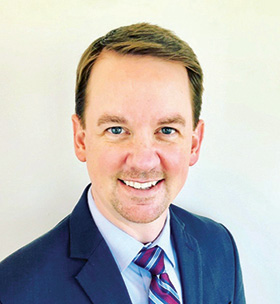Industry keeps heat on Medicare Advantage
By Theresa Flaherty, Managing Editor
Updated 10:27 AM CDT, Wed July 3, 2024
 YARMOUTH, Maine – There’s a lot of noise right now around improving the prior authorization process for Medicare Advantage plans and the HME industry needs to make sure it continues to add its voice to the conversation, say stakeholders.
YARMOUTH, Maine – There’s a lot of noise right now around improving the prior authorization process for Medicare Advantage plans and the HME industry needs to make sure it continues to add its voice to the conversation, say stakeholders.
Most recently, in June, members of the House of Representatives and the Senate reintroduced bipartisan legislation to streamline and standardize the use of prior authorization for these plans. The Improving Seniors’ Timely Access to Care Act has the support of the American Medical Association and more than 500 other national and state medical associations.
“It isn’t specific to DME, but it does apply because it includes provisions to streamline the authorization process and really make it more transparent,” says David Chandler, vice president of payer relations for AAHomecare. “There’s not a lot of data sharing going on, so these managed care plans kind of hide behind their internal processes – right or wrong.”
The bill would:
-
Establish an electronic prior authorization process for MA plans including a standardization for transactions and clinical attachments.
-
Increase transparency around MA prior authorization requirements and its use.
-
Clarify CMS’s authority to establish timeframes for e-PA requests, including expedited determinations, real-time decisions for routinely approved items and services, and other PA requests.
-
Expand beneficiary protections to improve enrollee experiences and outcomes.
-
Require HHS and other agencies to report to Congress on program integrity efforts and other ways to further improve the e-PA process.
Because there’s not a lot of data-sharing going on, that, in turn, allows the plans to deny coverage, even where Medicare guidelines, which the plans are required to follow, requires them to cover the items, say stakeholders, who are actively soliciting examples of this behavior to share with CMS to illustrate how pervasive the problem is.
“We have the attention of some folks within CMS,” says Craig Douglas, vice president of payer and member relations for VGM & Associates. “Really, the only way we have of (showing the problem) is with examples.”
Two product categories with some of the most issues with denials are complex rehab technology and non-invasive ventilation. Eleven members of the House of Representatives recently asked CMS Administrator Chiquita Brooks-LaSure to take action to ensure that Medicare Advantage payers do not employ coverage criteria for non-invasive ventilators that is more restrictive than Medicare NCD guidelines. AAHomecare has developed an outreach letter for providers to share with patients and caregivers who are experiencing access issues.
“If providers are going into the home, if a patient wants to share their story, film it on your iPhone,” Chandler said. “We have attention at every level of the issues – there’s no disagreement that there’s a challenge with managed care and prior authorizations but we’ve got to do our part in holding plans accountable. Congress needs to see this so they can provide better oversight.”
Comments